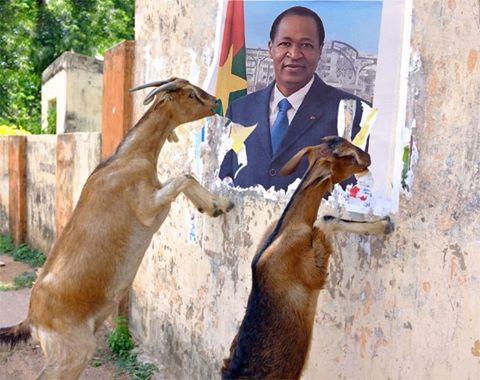
The photos are remarkable. A sea of humanity has taken to the streets of Ouagadougou. Tens of thousands (and possibly hundreds of thousands – the opposition claimed a million people) are voicing their opposition to one of Africa’s longest serving heads of state, Blaise Compaore of Burkina Faso.
Can the protests make a difference?
At issue is Compaore’s attempt to alter the constitution of Burkina Faso to allow him to run for president once again. Compaore has enjoyed nearly 30 straight years of uninterrupted rule. His election in 2010 – with 81% of the vote – was supposed to be his last one. Opposition leader Zephirin Diabre said in a news conference recently “The government is in the process of carrying out a constitutional coup d’etat.”
Compaore and the leading party have been seeking to have the constitution modified to allow him to run again. The protests this week in Burkina Faso are not the first of their kind, and likely not the last. There is clear resistance to Compaore’s plan to remain in power, but it’s difficult to tell at this juncture if democracy will prevail in Burkina Faso.
In an effort to make this political project look democratic, the government is asking the National Assembly to vote on allowing a referendum to take place on whether or not Article 37 of the constitution – which places a two-term limit on heads of state – should be modified to allow for a third term. In addition – or, rather, in parallel – to this strategy, Compaore and his party have been working alongside major parliamentary groups to sway them on this issue. Over the weekend, a major parliamentary group (with 18 of 127 seats at the National Assembly) announced its support for the constitutional modification, tipping the balance so far that a referendum may not even be required. Indeed, if 75% of the National Assembly votes in favor of the constitutional amendment, a referendum can be bypassed.

The situation in Burkina Faso is tense. Schools have been closed for the week, due to concerns about potential unrest surrounding the parliamentary vote,which will significantly impact the course of politics in the country. Compaore has been a key regional player, facilitator and broker and a Western ally – particularly in the fight against transnational threats in the Sahel region. He has strong support from loyal groups, but the events of the last few days – and, indeed, of the past year since the modification of Article 37 has been on the table – shows that the Burkinabe people will put up a fight. For many of the young people protesting, they have never had a leader other than Compaore, and his claims that you need time to build strong institutions ring hollow. Indeed, they ask, what will Compaore achieve in five additional years that was not accomplished in the last 27?
Photo credit: @mamouchkadiop, via the Facebook Page of the excellent Africa is a Country
